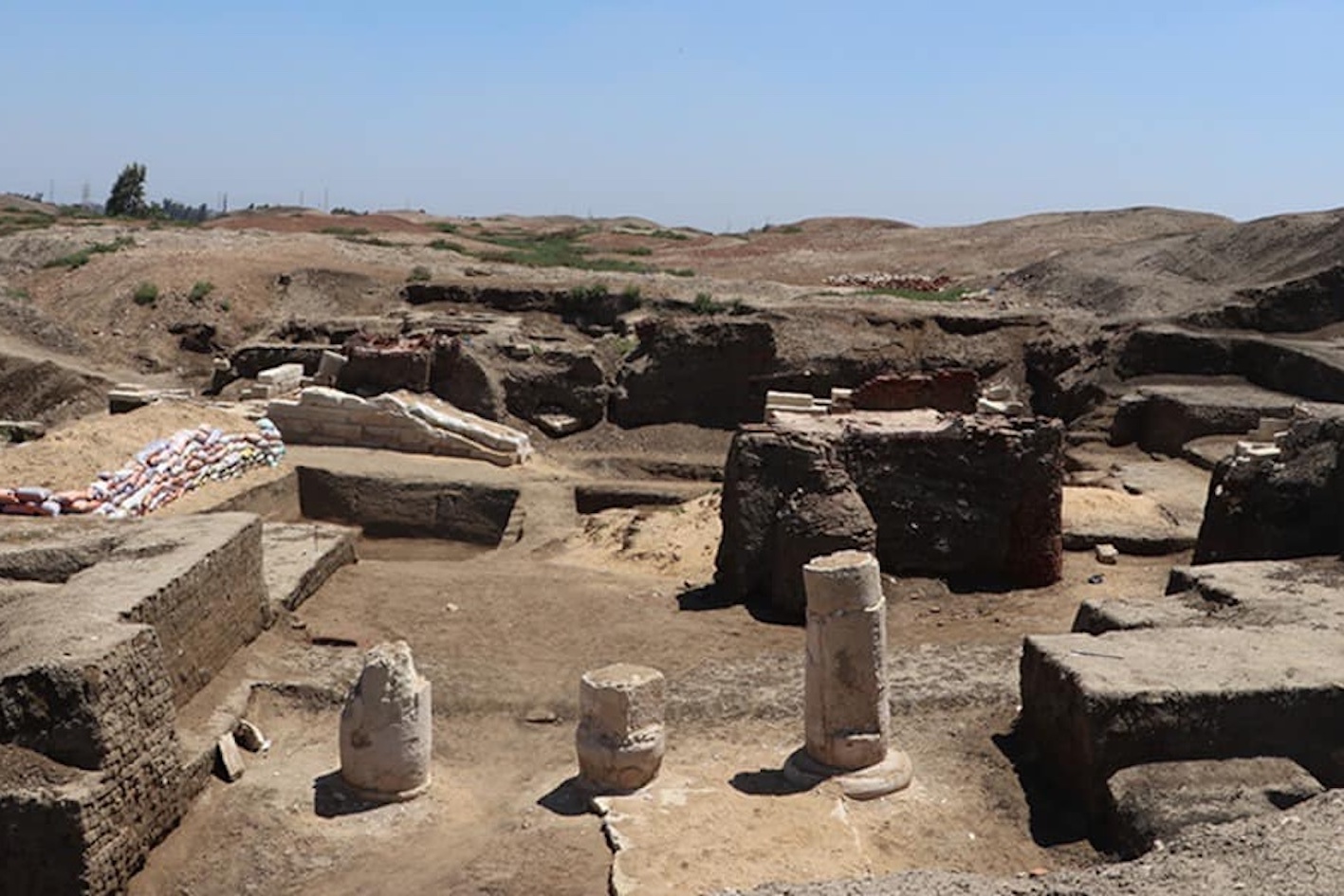Exciting news from the sands of Egypt! Archaeologists have discovered the remains of a remarkable ancient astronomical observatory at the Temple of Buto site, dating back to the sixth century B.C. Built from mud bricks, this observatory was likely used for tracking the sun and stars.
The find was made by the Egyptian archaeological mission under the Supreme Council of Antiquities (SCA) at Tell el-Fara’in in northern Egypt. Buto, known in Greek times, was named after an ancient Egyptian goddess, Wadjet.
During their excavations, researchers uncovered a large observatory building in the temple’s southwest corner. Ayman Ashmawy, head of the SCA’s Egyptian antiquities division, noted that this structure is the largest known astronomical observatory from this era in Egypt, covering about 9,150 square feet.

This observatory features an entrance facing east to catch the sunrise, a spacious central hall lined with columns, and high, sloping mud brick walls. Among the artifacts found was a sloping stone sundial, an essential tool for ancient timekeeping.
The sundial itself consists of a nearly 16-foot-long limestone slab adorned with five flat limestone blocks—three vertical and two horizontal. Additionally, another instrument for measuring the sun’s inclination was located in the observatory’s circular hall.
Archaeologists also unearthed several mud brick rooms, likely for storing tools and an area that may have functioned as the observatory’s tower.
الكشف عن أول وأكبر مرصد فلكي من القرن السادس قبل الميلاد بكفر الشيخنجحت البعثة الأثرية المصرية التابعة للمجلس الأعلى للآثار والعاملة بمعبد بوتو بتل الفراعين بمحافظة كفر الشيخ، في الكشف عن أول وأكبر…
Furthermore, numerous artifacts, including statues, jewelry, and pottery used in daily life and religious rituals, were also discovered in the observatory.
Mohamed Ismail Khaled, the SCA’s secretary-general, expressed that these findings showcase the “ingenuity and skill” of the ancient Egyptians in astronomy.
The Egyptians possessed an impressive comprehension of celestial events, cataloging stars, mapping constellations, and even creating a 365-day calendar. Their insights into the night sky significantly influenced their culture and mythology.
